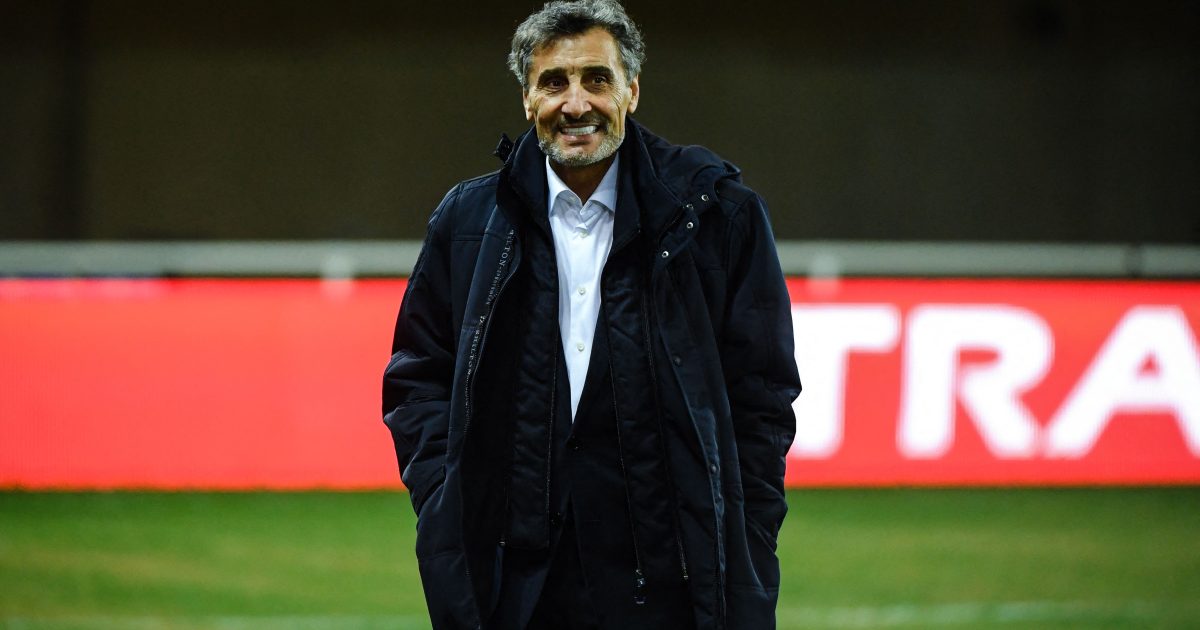Crise à Montpellier : Altrad sort la pelle le 18 juin pour reconstruire le MHR

C’est un comble pour Mohed Altrad. Comment cet entrepreneur à succès, président d’un des groupes de BTP les plus puissants au monde, n’arrive pas à bâtir une équipe à succès ?
Au terme d’une saison catastrophique, la pire de son histoire, le président du MHR a convoqué une conférence de presse mardi 18 juin pour tenter de reconstruire. En sortant la pelle un 18 juin, Altrad aime les symboles. En espérant que cet énième remaniement fonctionne…
La greffe Laporte n’a pas pris
Lorsque l’ancien entraîneur principal Richard Cockerill a été débarqué pour mauvais résultats à peine six mois après avoir été recruté, Altrad pensait mettre un coup de bulldozer et entamer une reconstruction, déjà. « En trois heures », Bernard Laporte, présenté comme l’homme providentiel à cette époque, mettait au point un nouveau staff en tant que nouveau directeur du rugby (en remplacement de Philippe Saint-André) : un contrat de deux ans pour Patrice Collazo (lui-même débarqué de Brive peu de temps avant) et un contrat de six mois pour ses adjoints Vincent Etcheto (attaque) et Christian Labit (rucks et attitudes au contact).
On allait voir ce qu’on allait voir. Mais la greffe Laporte, fort en gueule et adepte de l’humiliation continue envers ses joueurs comme avec ses prédécesseurs, n’a pas fonctionné.
Six mois plus tard, Montpellier a tout juste réussi à se maintenir dans le Top 14 après un access-match remporté sur un coup de pied face à Grenoble, couronnant une annus horribilis où le MHR termine à une piteuse 13e place après 9 victoires et 17 défaites.
Règlements de comptes
Depuis, les langues se sont déliées. Les joueurs ont contesté le management, Patrice Collazo a assuré avoir rempli sa mission (le maintien au minimum) même s’il a regretté auprès de Sud Radio que « il y a beaucoup d’irrationnel dans notre métier ».
Son adjoint Vincent Etcheto a eu la défaite plus amère, même s’il s’attendait à ne pas être reconduit, vidant sa maison progressivement depuis plusieurs semaines avant le dernier match.
Il s’est répandu dans le Midol, dénonçant un putsch mené par d’anciens joueurs du MHR… dont la plupart sont aujourd’hui aux commandes. « Ils ont été élevés au biberon Altrad et ont envie de continuer à téter. Je n’ai pas d’atome crochu avec ces gens-là parce qu’ils n’ont rien fait pour qu’on en ait. Je leur laisse, leur club », a-t-il craché.
Altrad refait des fondations qu’il espère plus solides
Promis à être président délégué, Bernard Laporte a finalement été rétrogradé par son président légitime. « Bernard Laporte reste directeur du rugby. Il n’est pas là pour entraîner, il est là pour apporter son expérience considérable. Il a sa vision du jeu, le dernier mot lui revient. Il est là sur le moyen et long terme », a confirmé Mohed Altrad lors de la conférence de presse du 18 juin.
Ce sera notamment à Bernard Laporte de rebâtir une identité et de faire le lien avec les supporters.
Le staff a également été changé en profondeur. Joan Caudullo, pur produit montpelliérain et jusqu’alors en charge du centre de formation, a été catapulté manager. Il sera épaulé par Benoît Paillauge (attaque), Geoffrey Doumayrou (défense), Didier Bès (mêlée), Antoine Battut (touche, maul, jeu des avants) Benson Stanley (jeu au sol) et Jérémy Valls (jeu au pied).
Mohed Altrad assume la nomination de novices (Caudullo et Paillauge) aux postes les plus importants : « C’est un challenge car aucun n’a été coach de haut niveau. J’assume ma responsabilité. Est-ce qu’ils sont capables de durer ? Chaque année, quatre à cinq clubs changent d’entraîneurs mais on ne parle que de nous, je ne comprends pas. »
Il n’a pas tort. Mais d’autres réussissent mieux comme l’Union Bordeaux-Bègles entraîné par Yannick Bru (3e) ou le Stade Français avec Karim Ghezal (2e) qui étaient arrivés en début de saison. Le souci au MHR, c’est que depuis 2019 et le départ de Vern Cotter, c’est le cinquième changement de coach au club quand on sait que la stabilité peut être un élément essentiel dans le succès d’une équipe.
Il faut voir par exemple Ugo Mola, entraîneur depuis neuf ans du leader Stade Toulousain (il a remplacé Guy Novès qui y était resté 22 ans) ou Ronan O’Gara qui dirige depuis cinq ans le Stade Rochelais (5e).
Sur le droit chemin
Côté joueur aussi il y a du changement avec l’arrivée pour deux ans de l’Ecossais Stuart Hogg qui avait pourtant juré il y a près d’un an qu’il était temps de prendre sa retraite (et qui depuis a souvent fait la Une des faits divers sur fond d’alcool). Il espère le remettre dans les clous tout comme Mohamed Haouas, condamné à 18 mois de prison, dont neuf ferme, pour violences conjugales en mai 2023.
La lueur pourrait venir de Madosh Tambwe (27 ans), l’ailier congolais qui a procuré des moments de magie à Bordeaux-Bègles cette saison et qui a signé « pour deux ou trois saisons ».
Altrad en appelle au travail, à la solidarité et file la métaphore, appelant à « construire quelque chose ; la vie, c’est bâtir et rebâtir ». Cette fois sera-t-elle la bonne ?


